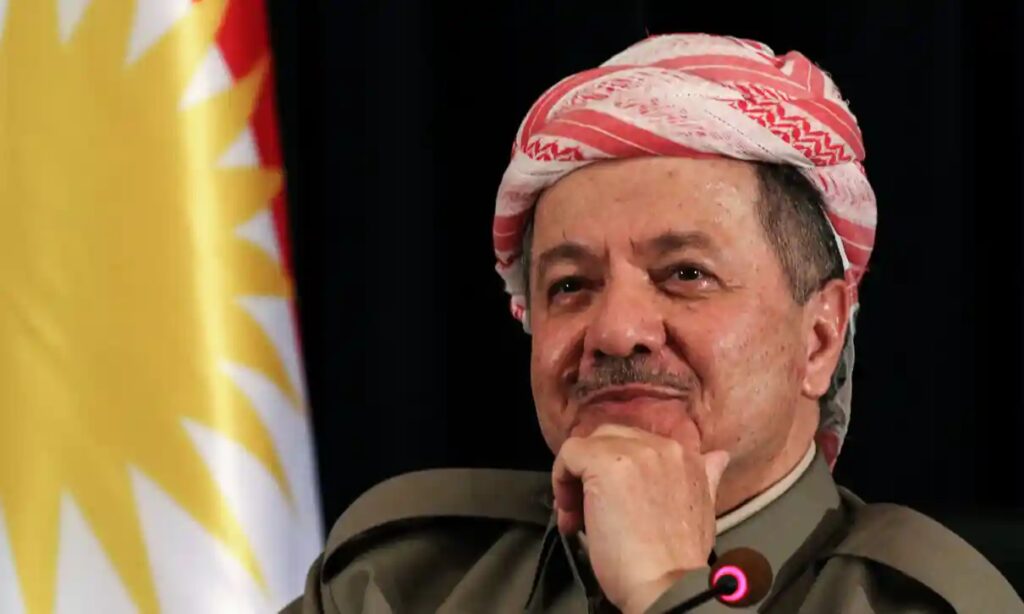
Masoud Barzani is to step down as Kurdish president after the contentious independence referendum he called backfired spectacularly, with the Kurds of northern Iraq stripped of a third of their territory and facing continuing attacks by Baghdad.
The veteran Kurdish leader told a parliamentary sitting in Erbil on Sunday that he would not re-contest the presidency and asked for his powers to be dispersed. His decision comes six weeks after the poll, which returned a 93% yes vote but immediately prompted recriminations from neighbouring states and a rival political bloc.
The move had been expected following the ballot, which rather than strengthen the Kurdish hold on northern Iraq has left it splintered, with officials scrambling to avert the imminent loss of their last remaining revenue streams – border crossings to Syria and Turkey through which the region’s oil is exported.
Barzani said his position would become vacant on 1 November, after which parliament will redistribute his powers. The Kurdish prime minister, Nechirvan Barzani, is expected to be handed some of the presidency’s duties, with the rest to be contested among senior officials.
After the poll, Iraqi Kurdistan lost oil-rich Kirkuk to military forces sent by Baghdad, which had been angered by the referendum’s inclusion of the contested city and other disputed territories.
Officials in the Iraqi capital saw the move as an annexation of Kirkuk, the fate of which has been contested over centuries. Military units and allied militias quickly seized oilfields and other strategic sites, turning off overnight more than half the Kurdish region’s revenues and leaving it with little hand to play in negotiations.
Since then, central government forces have pushed further into disputed areas, reverting the boundaries of the Kurdish north to those it held in 2003, and sharply exposing both its military and political limitations as it calls for internationally brokered dialogue to end the crisis.
The Iraqi military and Shia-led units have continued to stalk two border crossings that account for almost all of the region’s revenues. Talks between Erbil and Baghdad over the weekend centred on the central government taking control of the border posts, which would mean all revenues from the oil trade being centrally marketed with Erbil taking a cut.
The loss of remaining revenues would be a crippling blow to Erbil, the power base of the Barzani clan and the seat of power in the fractured Kurdish north, which has been blockaded by Turkey, Iran and Baghdad after the poll.
Erbil’s friends and foes alike had strongly opposed the holding of the referendum, leaving Barzani isolated before it was held and marooned ever since. The military capitulation of Kurdish forces sent to defend Kirkuk followed an intra-Kurdish split, led by senior members of the rival Talabani base in Sulaymaniyah, which saw forces loyal to it flee as Iraqi units attacked.
Iran played a prominent role in the recapture of the city, with the omnipresent general Qassem Suleimani marshalling militia forces who fought alongside the Iraqi army. Before the attack on Kirkuk, Suleimani twice visited Erbil in failed attempts to have the poll cancelled.
“Suleimani wants to turn Masoud back into the leader of the clan for defying him,” one regional official said. “He is not going to take his foot off his neck.”
Leaders in Erbil have proposed suspending the results of the referendum, but that has been rejected by those who opposed it, who have instead called for the results to be declared null and void.
